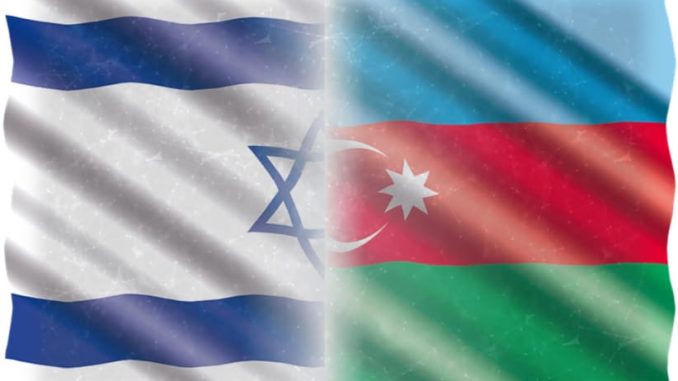Iran outraged its ambassador to Lebanon was harmed in pager attack
Israeli tourists have much to see: the Ram Ram Waterfall; the mountain forests around Shusha; the burning Yanar Dag cave; the snow-capped peak of Shahdag; the mineral waters and beauty of Kalbajar; the sandy beaches of Bilgah; the historical landmarks in Nakhchivan; and of course, the beautiful capital city of Baku. Azerbaijan is always happy to welcome guests with goodwill.
The path to Azerbaijan’s current prosperity has been long and hard. Thirty years ago, Armenian militants, with support from Soviet army units, captured 20% of Azerbaijan’s sovereign territory. For nearly 30 years, these lands (an area larger than all of Lebanon) were under Armenian occupation.
The invaders forced more than a million Azerbaijanis to flee their homes. During those difficult years, Jews, as citizens of Azerbaijan, took an active part in defending their country. Why? Because we were born there, we grew up there, and our ancestors are buried there. This land has always treated Jews with warmth and love.
Azerbaijan endured the occupation of their lands for almost 30 years. Yet, despite the international community condemning Armenia’s violations and even passing four UN Security Council resolutions, nothing was done to restore justice. This further showcased the inefficiency and bias of international organizations, especially the United Nations. So, in 2020, Azerbaijan independently liberated its lands and on September 20, 2023, exactly a year ago, it fully completed the implementation of the UN Security Council resolutions.
However, after decades of occupation, Karabakh was left in ruins. In the 2021 US State Department report on religious freedom around the world, it is noted that the Parliamentary Assembly of the Council of Europe passed a resolution on the “Humanitarian Consequences of the Nagorno-Karabakh Conflict between Armenia and Azerbaijan,” condemning the destruction and damage for which Armenia is responsible, particularly the total devastation of the Agdam and Fizuli regions and the destruction of Azerbaijan’s cultural heritage.
The State Department report mentions that, according to diplomats, civil society representatives, and journalists who visited the territories liberated from occupation, hundreds of Azerbaijani religious monuments were looted, vandalized, desecrated, or destroyed while under Armenian control, including many mosques, Azerbaijani shrines, and cemeteries. The same report also notes that witnesses claimed Armenian graves in the region remained largely intact.
BEFORE THE Armenian occupation, there were 67 mosques in Karabakh. The invaders destroyed 64 and turned three into pigsties. After the victory, Azerbaijan made the restoration of Karabakh a top national priority. In just eight months, a new modern airport was built near the destroyed city of Fizuli. Right next to it, the ruins of destroyed houses still stand. The Fizuli airport is now operational, and a second airport has opened in Zangilan. Azerbaijan plans to build four new airports in Karabakh. Major construction projects, such as roads and railways, are underway, with international experts involved in building tunnels through the Karabakh mountains.
Azerbaijanis are rebuilding cities, clearing minefields, and returning farmland to farmers. Huge sums from the state budget have been allocated to rebuild Karabakh. That’s how people treat their own land. It’s important to note that while the invaders demolished mosques, Azerbaijan is now rebuilding them. Near Shusha, a Christian church is also being restored. The building is covered in scaffolding, and work is in full swing.
Thus, the dream of Armenian nationalists for a “Greater Armenia from sea to sea” came to an end. The very nationalists who rejected the values of peaceful coexistence in favor of a theory of the “ancient people’s” exclusivity, claiming the right to seize foreign lands, expelling hundreds of thousands of residents, and destroying them solely because of their ethnicity in belonging to the Azerbaijani people. The shameful defeat of the Armenian nationalists showed that in today’s world, a multilateral policy based on cooperation and mutual understanding is what works.
In the center of Baku, near the house where I was born and raised, the Armenian church still stands, just as it always has. Other Christian churches and prayer houses continue to operate in the city. Synagogues and Jewish centers are open as well.
Interestingly, unlike in Europe, you won’t see police patrols or armored vehicles outside synagogues in Azerbaijan – there’s no need for them. When I visited Baku last year before the New Year with Christian friends from Europe, they were amazed by the beautifully decorated Christmas trees and shop windows on the streets.
This is Azerbaijan.
CONTINUE
The author is an Israeli political scientist and writer.




Leave a Reply
You must be logged in to post a comment.